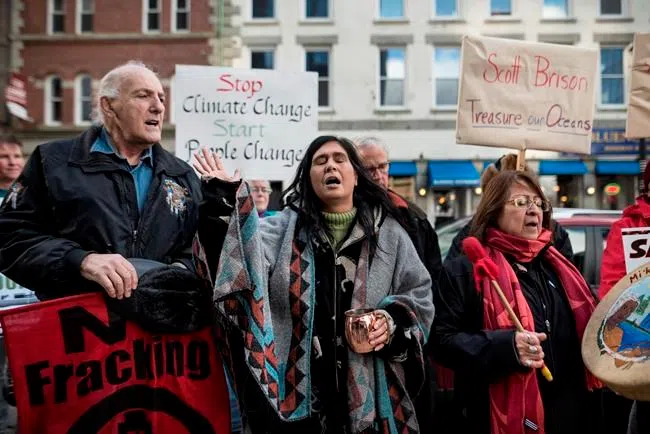
Environmental groups raise alarm about possible changes to offshore assessments
HALIFAX — Prime Minister Justin Trudeau appears poised to break a key election promise regarding the environment, a coalition of about 20 environmental and fisheries groups said Wednesday.
The Offshore Alliance, which includes members from Atlantic Canada and Quebec, staged a news conference and protest march in Halifax to raise awareness about a federal discussion paper that says changes are coming to the way environmental assessments are handled for major offshore oil and gas projects.
The paper, released in June, says Ottawa is considering streamlining the process to have it handled by one agency instead of three separate authorities — a recommendation endorsed by the coalition.
However, coalition members said they are worried about a proposal that could see federal assessments conducted jointly with the federal-provincial offshore petroleum boards in Nova Scotia and Newfoundland and Labrador.
